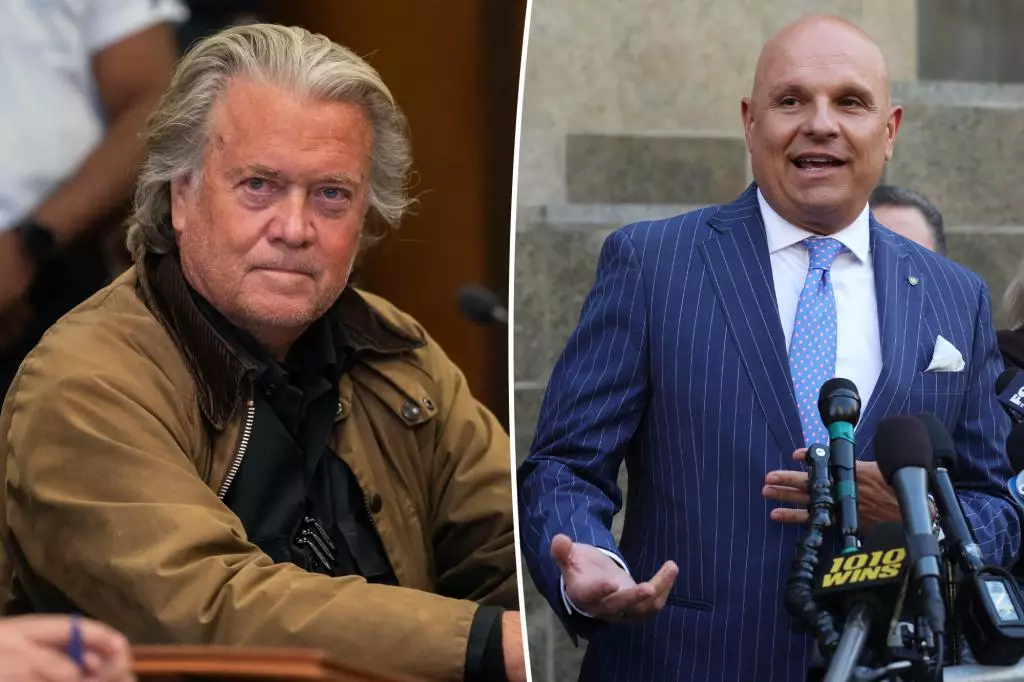Steve Bannon, a name synonymous with contentious political tactics and a close ally of former President Donald Trump, is embroiled in a serious legal struggle. Facing a fundraising fraud trial, Bannon’s upcoming court date on February 25 could potentially reshape his future and the political landscape surrounding him. The allegations, which claim that he defrauded donors to his non-profit organization, We Build The Wall, have placed him squarely in the crosshairs of public scrutiny and legal consequences.
The charges against Bannon, brought forth by Manhattan District Attorney Alvin Bragg, include money laundering, conspiracy, and fraud. Accused of misleading donors while earning significant amounts for himself, the details of the case are alarming. Bannon’s legal strategy appears to hinge on portraying the charges as politically motivated, a common narrative among his supporters. His recent hire of Arthur Aidala, a seasoned attorney known for representing high-profile figures, signals a robust defense effort aimed at counteracting the severe implications of the trial. Aidala’s confident statement about clearing Bannon’s name suggests a proactive approach to discredit the allegations that he views as instigated by political opponents.
The potential ramifications of a guilty verdict for Bannon are significant. With the possibility of a prison sentence ranging from five to fifteen years, the stakes have never been higher. Bannon has pleaded not guilty, but the precedent set by the convictions of his associates, Brian Kolfage and Andrew Badolato, who were sentenced for their roles in the same fraudulent scheme, looms large. The courtroom drama not only has personal stakes for Bannon but could also impact his political career and the broader movement he represents.
Bannon’s case transcends individual culpability; it has become a focal point in the partisan discourse surrounding Trump’s administration and its aftermath. His allegations illustrate the intersection of fundraising practices in political movements and the ethical scrutiny that often accompanies them. While Bannon contends that he is a victim of “lawfare”—a term used by those who believe legal actions are politically motivated—the broader implications could lead the public to reevaluate the integrity of political fundraising efforts.
As Bannon prepares for trial, many questions remain unanswered. Will he successfully defend against allegations that seem to intertwine with both his personal ambitions and his political ideology? The upcoming court proceedings will undoubtedly attract intense media attention, revealing societal divides and prompting discussions about the role of ethics in politics. Regardless of the trial’s outcome, Bannon’s case serves as a cautionary tale about the complex and often perilous nature of fundraising in the political arena, along with its lasting impacts on reputations, careers, and public trust in political institutions.
